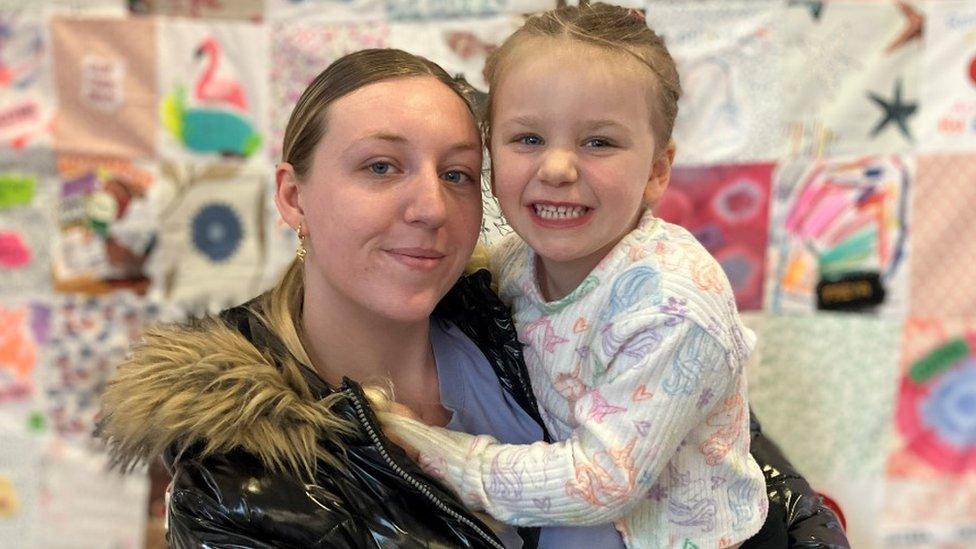Why early years childcare is a key election issue
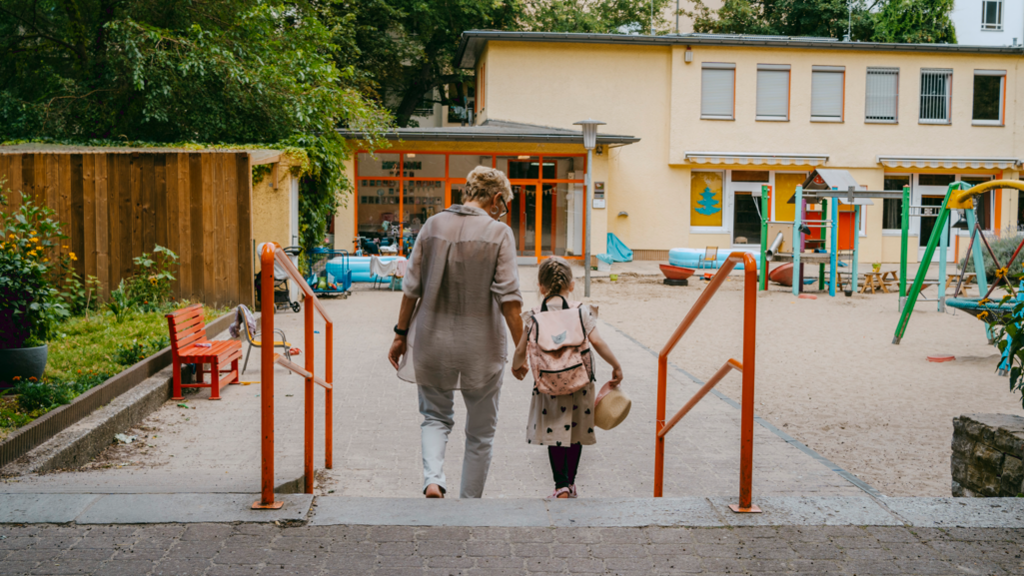
Early years education is a high-pressured environment, said the National Day Nursery Association
- Published
Nursery owners have called for the next government to show "respect" for early years education workers by investing more in their pay and training.
Childcare sector staff told the BBC that employees should be entitled to the same status as teachers in schools and that they were not providing a "babysitting" service.
The manager of a York nursery said a lack of funding for early years settings meant that staff were paid minimum wage despite being key to children's development.
The Department for Education said it had launched recruitment campaigns to encourage people to work in childcare, and even offered £1,000 sign-on bonuses, but campaigners have demanded a shake-up of the rules around free nursery hours ahead of the general election on 4 July.
Nancy Kotecha, owner of Osbaldwick Montessori in York, said she could have opened her new business a year earlier if she had received more government support.
She self-funded the nursery, but her manager Neil Collins said a new primary school would have been paid for by the state.
He added that nurseries struggled with high staff turnover and the perception that working in childcare is easy.
Mr Collins said: "That’s something the government could explain better, promoting what the job is - because it’s not babysitting.
"More needs to go into training so it’s valued in the same way as being a teacher. Start calling it ‘early education’ and not ‘childcare’."
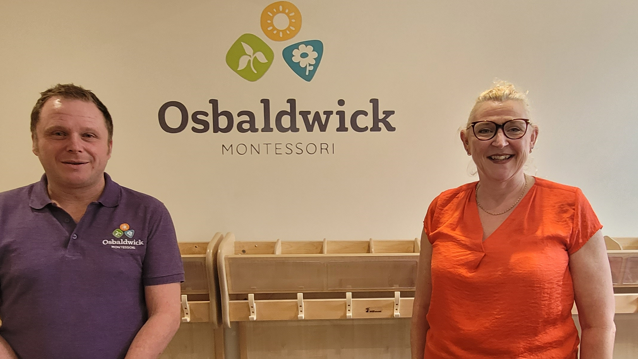
Neil Collins and Nancy Kotecha run Osbaldwick Montessori in York
Mr Collins said there were fewer highly qualified staff available as they "do not feel respected in their role" like a "proper" teacher would.
Ms Kotecha said the current government did not recognise early years education as being as important as primary school provision - and that needed to change.
"During the formative years a million brain neurons are being developed every second - so unless a child is stimulated in that area they are going to go on to develop issues," she said.
Ms Kotecha, who used to run Leeds Montessori, said more funding was especially needed for independent settings that are being "swallowed up" by chains.
According to Ofsted data, the number of nurseries in Yorkshire has fallen since the last election.
There were 184 fewer registered providers and 2,511 fewer places in August 2023, compared to August 2019.
"As well as funding for quality recruitment, we need funding to simply exist and be a viable business," Ms Kotecha said.
"I have skint myself making this building what it is."
Ms Kotecha is also calling for the new government to address transparency around the free hours of childcare parents can claim.
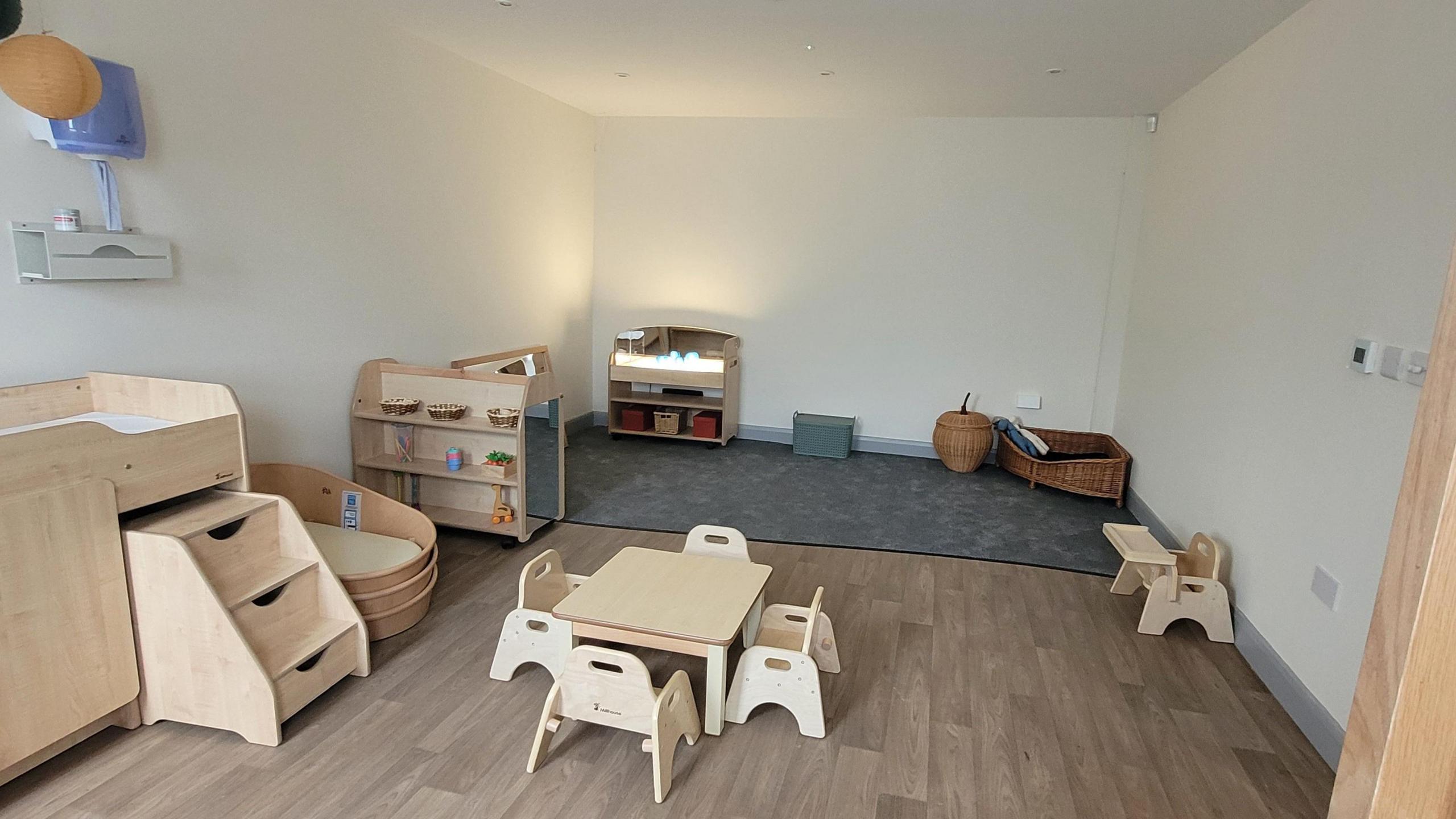
Ms Kotecha fully funded the nursery herself
Current government rules are, external are that parents of children aged nine months to two years are entitled to 15 hours per week of free childcare, which rises to 30 hours once the child turns three.
She said: "But it’s almost a deception. Parents think they’re getting free childcare but they're not necessarily, because the funding is only for term-time and most nurseries operate all year round.
"You need a degree in maths before you can even look at the formulas.
"So I think if the government just made one straightforward formula that could be applied to each council, it would make our lives so much easier."
The National Day Nursery Association said early years should be treated "on a par" with the rest of the education sector.
Its director of policy and communications Jonathan Broadbery told the BBC: "It's a high-pressured environment with a lot of responsibility so they deserve the same status, same pay and same recognition as teachers.
"We should not be trying to do things on the cheap for early years education."
He said 75% of a setting's operational budget went on staffing and there was not enough income or funding to increase wages as desired.
Mr Broadbery added: "We are calling on the new government for a fully-funded workforce strategy and a long-term plan.
"We do want to attract more people into the sector but we also want to keep the brilliant people we have - and part of that is funding and part is supporting their career development."
The policies
The Conservatives said they would expand their free childcare offer. Parents would be able to claim 30 hours of government-funded childcare per week over 38 weeks of the year, from the age of nine months up to their child starting school.
Labour pledged to take this same plan forward, rolling out funding over the next year. They also announced a plan to open 3,300 new nurseries in primary school classrooms and create 100,000 more nursery places.
The Liberal Democrats said they want all parents to be able to access childcare that is flexible, affordable and fair. Their manifesto includes plans to increase maternity, paternity and shared parental leave pay along with an enhanced rate of child benefit for one-year-olds.
Reform has pledged to "frontload" the child benefit system for children aged 1-4 to give parents more time to spend with their children.
The Green Party said it would abolish the two-child benefit cap and would extend the current government's offer of childcare to 35 hours per week from the age of nine months. It also promised £1.4bn per year for local authorities to invest in Sure Start centres aimed at improving early years health and education.
Follow BBC Yorkshire on Facebook, external, X (formerly Twitter), external and Instagram, external. Send your story ideas to yorkslincs.news@bbc.co.uk, external.
Related topics
- Published24 June 2024
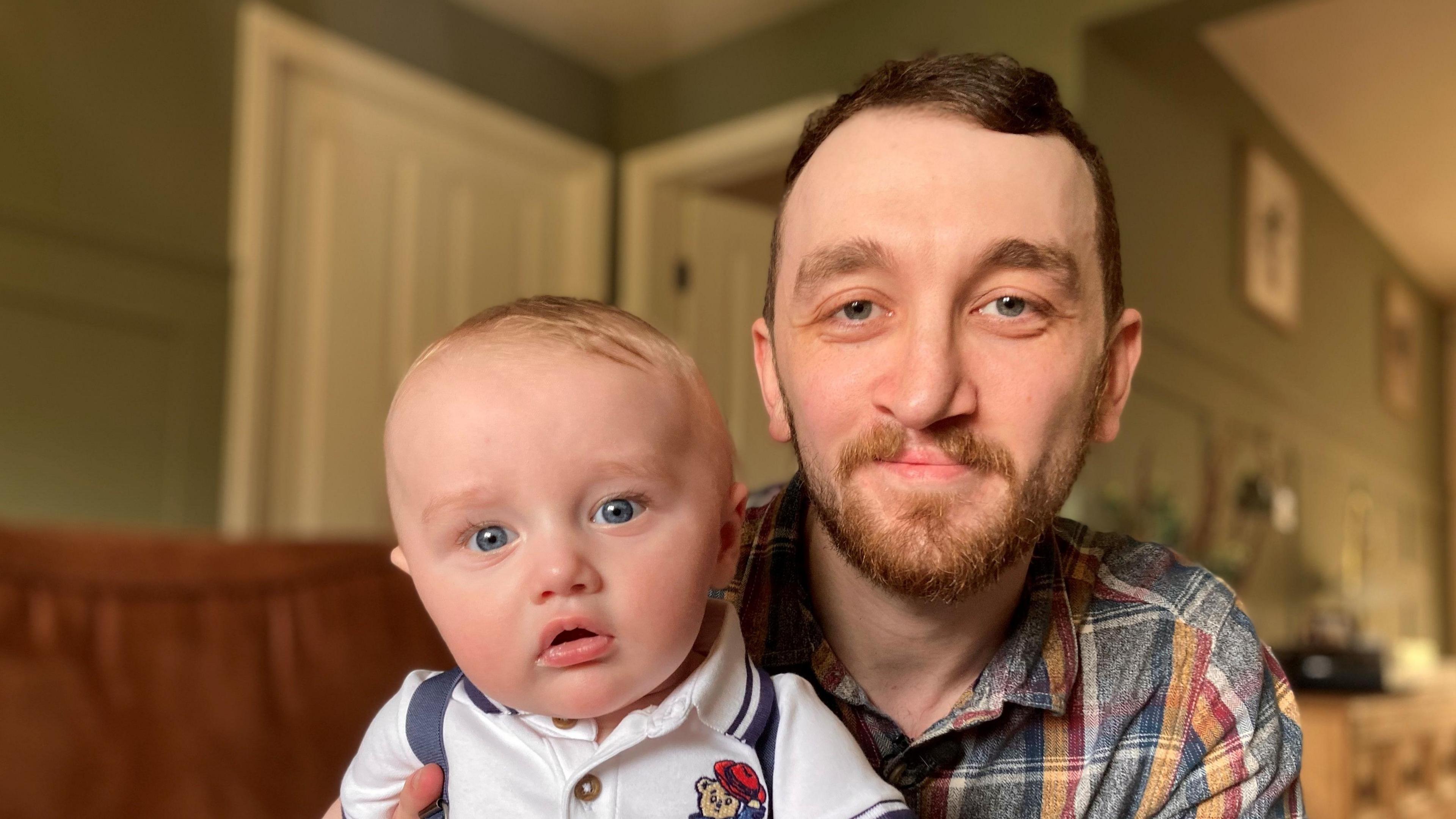
- Published2 May 2024
